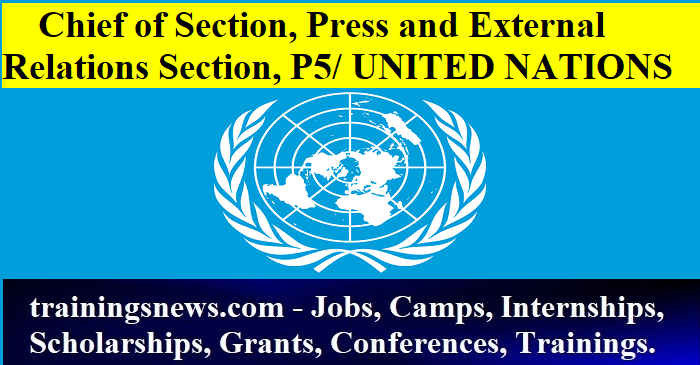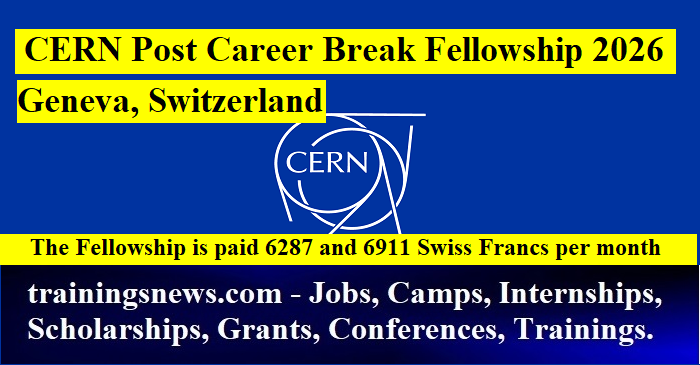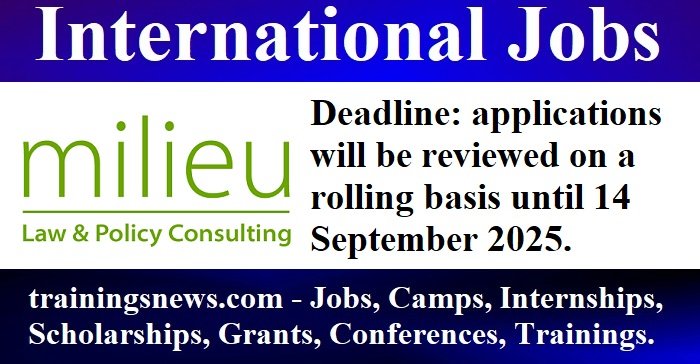France Excellence Eiffel scholarship program
Call for application 2026 will start in October 2025. The Eiffel Excellence Scholarship Program was established by the French Ministry for Europe and Foreign Affairs to enable French higher education…
Czech Republic Government Scholarships 2025 | Fully Funded
Scholarships Interested in studying in Czechia but worried about the costs? Check out the scholarship opportunities for international students! 1. scholarships for degree studies Government scholarships For students from: Bosnia…
Princeton University Fung Global Fellows Program 2026-2027
Deadline The application deadline for the 2026-27 academic year will be November 17, 2025. The call for applications for the 2026-27 academic year is now open. The research topic for…
NTU Singapore Global Connect Fellowship 2026
Programme Details What it entails? Generous Fellowship: Receive a stipend of SGD 5,000 along with complimentary housing. Research Mentorship from World-Leading Faculty: Connect with experienced scientists and faculty members to…
#Erasmus Mundus MAPP Scholarship 2026-28
EMJM Scholarship: The Mundus MAPP Consortium has been supported by the Erasmus + action of the European Union. The Erasmus Mundus (EMJM) scholarship will be offered to outstanding applicants from…
Schlumberger Foundation Faculty for the Future Fellowship Program 2026-2027 (Funded)
How to apply: Applications are only accepted through the on-line system which will be live from the 1st September 2025. When to apply for the 2026-2027 Faculty for the Future…
SIIT University EFS Graduate Scholarship 2026 (Type B) in #Thailand
Graduate Scholarship Program for Excellent Thai Students (ETS) Type B Sirindhorn International Institute of Technology, Thammasat University Scholarships from the Sirindhorn Technology Scholarship Fund are available for excellent Thai students…
HEC Commonwealth Scholarships 2026 for MS & PhD | Fully Funded
COMMONWEALTH PHD SCHOLARSHIPS Overview Commonwealth PhD Scholarships are for applicants from least developed countries and vulnerable states, as classified by the OECD Development Assistance Committee (DAC), in the Commonwealth, for…
Harvard Environmental Fellows Program 2026 in USA
The application window for the 2026 Environmental Fellows program is now open. Applications are due December 1, 2025. “Harvard is committed to fostering the development of talented scholars with an…
NextGen Women Leaders Fellowship
Volunteer Mentor – NextGen Women Leaders Fellowship Location: Remote Role Type: Volunteer Description: United Leaders Global is seeking passionate and dedicated volunteer mentors for our NextGen Women’s Leadership Fellowship. This…
International Jobs/ Chief of Section, Press and External Relations Section, P5/ #UNITEDNATIONS
Org. Setting and Reporting This position is located in the Geneva Information Service (UNIS) and the incumbent will report to the Director of UNIS and through him/her, to the Department…
Paid African Union Internship Program 2025 Opportunity for Young Africans
Dear Candidates, Thank you for your interest in the African Union. Please complete your profile using the African Union CV template. Be aware that the use of the AU CV…
FULLY FUNDED! Czech Government Scholarship
Government Scholarships – Developing Countries The Government of the Czech Republic offers scholarships within the framework of its Foreign Development Cooperation in support of the study of foreign nationals from…
Mandela Washington Fellowship Reciprocal Exchange Component 2026
About the Reciprocal Exchange The Mandela Washington Fellowship for Young African Leaders—the flagship exchange program of the U.S. Government’s Young African Leaders Initiative (YALI)—was created to invest in the next…
#CERN Post Career Break Fellowship 2026 in #Geneva, #Switzerland
Post Career Break Fellowship Geneva, Switzerland Full-time Company Description At CERN, the European Organization for Nuclear Research, physicists and engineers are probing the fundamental structure of the universe. Using the…
Google Software Engineering PhD Internship 2026 At Zurich & Munich
Google place Zürich, Switzerland; Munich, Germany Please complete your application before 24th October 2025. We encourage you to apply as early as possible as we review applications on a rolling…
American Association of University Women (AAUW) International Fellowships 2026 (Funded)
AAUW’s International Fellowships promotes education and equity for women by investing in international applicants who will be pursuing postgraduate studies or research in the U.S., with the intention of applying…
Applications for the World Bank Treasury Internship are now open until October 12th, 2025 !
The World Bank Treasury is one of the few places where you work at the nexus of finance, innovation & international development. The Summer Internship is the only program in…
Internship – AI Integration & Investigative Technologies, OIGI, Rome, Italy/ World Food Programme (WFP)
Internship – AI Integration & Investigative Technologies, OIGI, Rome, Italy Apply Internship – AI Integration & Investigative Technologies, OIGI, Rome, Italy Apply remote type Fully Remote locations Rome, Italy time…
International Jobs: Policy Analyst. Location: Brussels, Belgium/ Milieu Consulting SRL
Policy Analyst Location: Brussels, Belgium Apply for this job The role We are looking for a Policy Analyst with at least 2 years of relevant professional experience, strong quantitative skills…



























